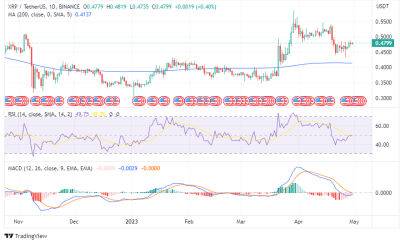As AI weaponry enters the arms race, America is feeling very, very afraid
T he Bible maintains that “the race is not to the swift, nor the battle to the strong”, but, as Damon Runyon used to say, “that is the way to bet”. As a species, we take the same view, which is why we are obsessed with “races”. Political journalism, for example, is mostly horserace coverage – runners and riders, favourites, outsiders, each-way bets, etc. And when we get into geopolitics and international relations we find a field obsessed with arms “races”.
In recent times, a new kind of weaponry – loosely called “AI” – has entered the race. In 2021, we belatedly discovered how worried the US government was about it. A National Security Commission on Artificial Intelligence was convened under the chairmanship of Eric Schmidt, the former chair of Google. In its report, issued in March of that year, the commission warned: that China could soon replace the US as the world’s “AI superpower”; that AI systems will be used (surprise, surprise!) in the “pursuit of power”; and that “AI will not stay in the domain of superpowers or the realm of science fiction”. It also urged President Biden to reject calls for a global ban on highly controversial AI-powered autonomous weapons, saying that China and Russia were unlikely to keep to any treaty they signed.
It was the strongest indication to date of the hegemonic anxiety gripping the US in the face of growing Chinese assertiveness on the global stage. It also explains why an open letter signed by many researchers calling on all AI labs to immediately pause for at least six months the training of AI systems more powerful than GPT-4 (and adding that “if such a pause cannot be enacted quickly, governments should step in and institute a moratorium”) fell on closed ears in Washington and
Read more on theguardian.com




















